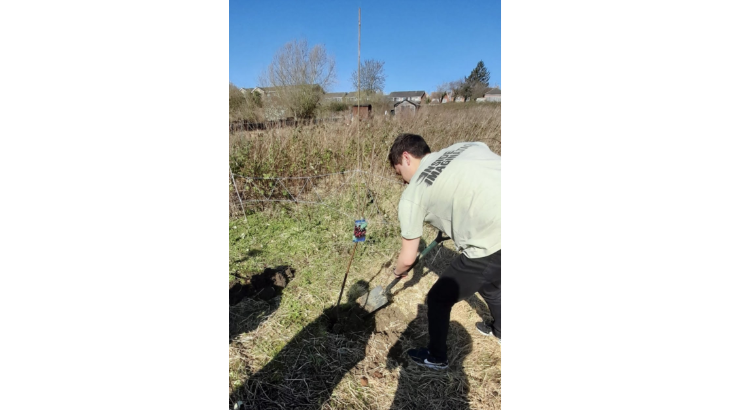My View: Callum Boddington
CA-WN gives a Councillor the space to speak about climate action

A plastic bag bought, used, and thrown away today will remain on this planet for around twenty to one hundred years. A simple action that will have a lasting impact; actions no matter how small or insignificant have consequences. This is something we must consider as we move forward and plan for a more sustainable future. Within this article I am aiming to highlight some of the simple actions we as local communities can take to help protect our environment and reduce the stresses on our climate. Climate change itself causes great debate. I am in no way an expert on this issue, but I can recognise the impact humanity has on our planet, and that we cannot continue to consume in the same way we have. While this will make up the first part of discussion in this article, I plan to use the second part to outline a youth agenda for climate change. I want to expand on how the young leaders of today are going to play a crucial part in building a cleaner and more sustainable future for tomorrow.
Since becoming a Parish Councillor in Wollaston, I have had the privilege to create and work on the Wollaston Green Initiative which aims to provide information and educate people on ways they can live more sustainably locally. This involves where you can recycle certain items such as crisps, blister packets and batteries and how to create a compost bin in your back garden. Providing people with the information to allow them to act themselves is one of the most powerful things we can do. Information is a key to everything; it empowers people to make informed and independent decisions.
Through my role I have also attended networking events and conferences about what action we can take within our communities to be greener. The most recent was the NACRE Grow Green Together conference; where I learnt about local projects across Northamptonshire, from communities and local businesses, to action groups like Save Our Street Trees as well as local Parish Council projects and the work that our new Unitary Councils are doing.
But there are other simpler ways we can improve our natural environment, such as wilding our green spaces and planting trees as well as protecting and looking after the ones we already have. Educating and providing information at different levels for people on how to live sustainably, recycling, donating to and buying from charity shops, composting, walking or cycling instead of driving, returning of unused electrical equipment, among so many others. I am sure there are more sophisticated ways we can act, but sometimes the simplest action can be the easiest to implement.
As we face a number of new challenges, as well as some long-standing ones, the introduction of new and fresh ideas creates a sense of renewed energy around issues. And climate change is one of them - young people and young leaders are in a unique position to propose new ideas to solve complex issues. Albert Einstein phrased it best ‘We cannot solve our problems with the same thinking we used when we created them’. This is a message that has stayed with me, and I hope will inspire others to take up leadership positions locally and in any organisation, school or club, as it did for me.
Young leaders have in recent years led the way on climate change, sharing new, realistic, ideas on how we can build a sustainable future. And I’m not just talking about Greta Thunberg, there are countless others around the world who are not only sharing ideas but also implementing them.
At Wollaston Secondary School a group of students have put themselves forward as climate change ambassadors, where they explore what they can do to help make the school more environmentally friendly. This shows that they are committed to making a difference, and my hope is that the school continues to support them and implement their climate change agenda across the school. Young people can often find themselves being listened to but then not being allowed to test or try their ideas. Young people are the future, and they should be given every opportunity to be bought in on decisions and help create solutions for a world they will inherit.
My final advice to young people and young leaders is simple. Stand up, speak your mind, know your facts, and challenge the long-established norms and institutions. It won’t be easy, and you will encounter hurdles, be spoken down to or told you are wrong or misguided; but never give in and don’t be afraid to fail. To lead is to fail, and failure only pushes us to succeed.
Even if the issues you are passionate about aren't to do with climate change, you shouldn’t be afraid to take a stand on an issue and speak up to those who have the power to help you.
